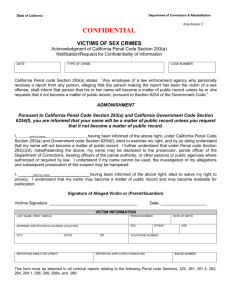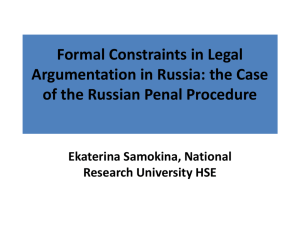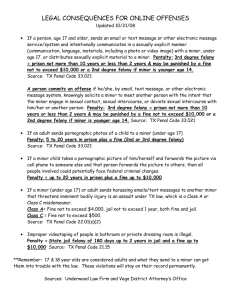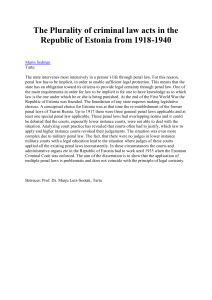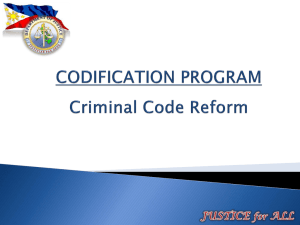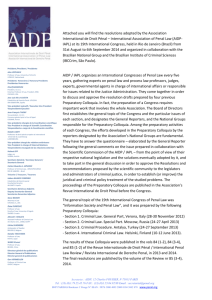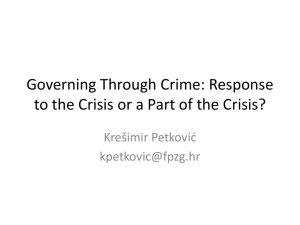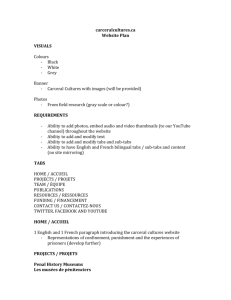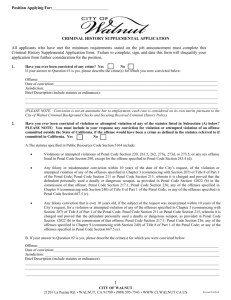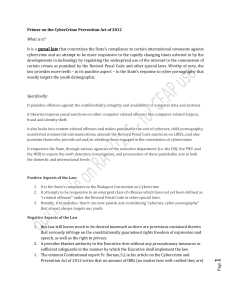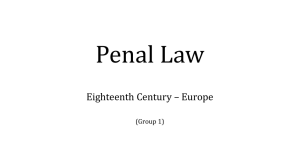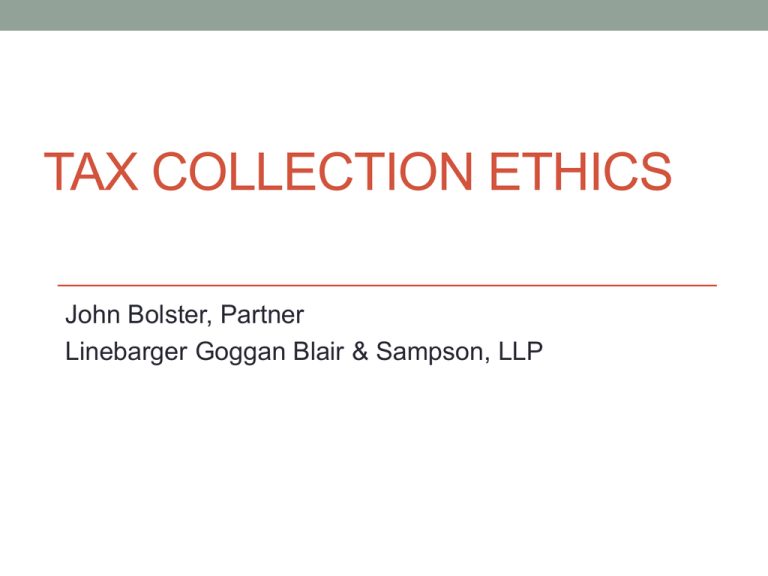
TAX COLLECTION ETHICS
John Bolster, Partner
Linebarger Goggan Blair & Sampson, LLP
2
Changes Due to SB 546
• County Tax Assessor/Collectors and their employees will
no longer be subject to TDLR oversight
• County Tax Assessor/Collectors and their employees will
not be subject to TDLR rules
• Continuing Education requirement changes to 20 hours
per calendar year and new County TACs will be required
to take an ethics and constitutional responsibility course
within 90 days of taking office. This requirement applies to
all County TACs even those who do not collect taxes.
3
Changes Due to SB 546 continued
• County Tax Assessor/Collectors who do not comply with
the education requirements may be removed from office
under Subchapter B, Chapter 87, Local Government
Code for incompetency.
• Anticipate the classes to stay the same with the exception
of the course required for new County TACs. It is not clear
what, if any, examinations you will be required to pass.
• Effective date is September 1, 2013 except for the
provision requiring the class for new County TACs which
take effect January 1, 2014
4
TDLR Rules
• The Property Tax Professional Code of Ethics remains an
excellent guide to proper and ethical behavior for County
Tax Assessors and their staff
• Abiding by the tenets contained in the Code of Ethics will
assure the public perceives that your office is run with the
highest ethical standards
• The recent controversy involving the IRS illustrates how
damaging the perception of favoritism and unequal
treatment can be to a tax collection agency even if there
are no criminal violations.
5
FAIR & EQUAL COLLECTION
PRACTICES – TDLR RULE 94.71
94.71 a) Uniformity of collection practices
Hardships
Special Requests
Have a set policy regarding litigation targets
(there is no requirement that everybody be
treated equally, only uniformly)
Tax Warrants
Workflow
6
FAIR & EQUAL COLLECTION
PRACTICES – TDLR RULE 94.71
94.71 c) Knowingly providing incorrect
information
Tax Warrants
Tax Statements
7
FAIR & EQUAL COLLECTION
PRACTICES – TDLR RULE 94.71
94.71 d) Misleading the public
Collection practice inquiries – Do not
threaten to take actions that you will not take.
Tax sale inquiries
8
GENERAL ETHICAL CONSIDERATIONS
REGARDING TAX SALES
Uniform rules required
Who can bid, or better question, who should
bid?
9
Penal Code Provisions
• Until and Unless the County Tax Assessors adopt their
own rules the primary enforcement mechanism to insure
ethical behavior in the County Tax Office will be through
criminal prosecution.
• However always remember just because its not criminal
does not mean it is ethical.
10
Bribery
• Sec 36.02 Penal Code
• You commit the is offense if you accept a benefit in return
for a decision, opinion, recommendation, vote, or other
exercise of discretion as a public servant.
• Benefit means anything reasonably regarded as
pecuniary gain or pecuniary advantage, including benefit
to any other person in which whose welfare you have a
direct and substantial interest.
• The Benefit received can be delivered after the action in
question and it is still a crime
• 2nd degree Felony
11
Improper Influence
• Sec. 36.04 Penal Code
• This offense could be committed by attempting to
influence the decisions of the Commissioner’s Court on
the basis of considerations other than those authorized by
law.
• Class A misdemeanor
12
Obstruction or Retaliation
• Sec 36.06 penal Code
• A violation occurs if you intentionally or knowingly harm or
threaten harm to another by an unlawful act in retaliation
for their reporting a crime or to prevent them from
reporting a crime
• It is possible to be guilty of violating this even when what
the “crime” reported is determined not to be criminal.
• 3rd Degree Felony-punishment could be more serious
than for the original crime
13
Gifts to Public Servants
• Not allowed to receive gifts from anybody who you know
•
•
•
•
•
•
is interested in or likely to become interested in any
contract, payment, claim or transaction involving exercise
of your discretion.
Does not apply to gifts valued at less than $50
Does not apply to Political Contributions
Does not apply to Food, Lodging, Transportation, or
entertainment accepted as a guest (gift giver must
accompany you)
Sec 36.08 Penal Code
Class A Misdemeanor
Unlike Bribery this does not require a quid pro quo
14
Abuse of Official Capacity
• Section 39.02 Penal Code
• You commit this offense if you with the intent to obtain a benefit
•
•
•
•
or with intent to harm or defraud another you violate a law
relating to your office or employment (think tax code) or you
misuse government property, services, personnel or any other
thing of value belonging to the government.
Very Broad Statute
Violation of a law relating to your office is a Class A
Misdemeanor
Misuse can be anywhere from a Class A misdemeanor to a 1st
Degree Felony depending on the value of what is misused
Most Common Violation
15
Official Oppression
• 39.03 Penal Code
• Enforcement of an illegal tax lien, denying a taxpayer their
rights under the tax code, and sexual harassment under color
of office would be violations of this law.
• Color of Office is when the public servant acts or purports to
act in an official capacity or takes advantage of such capacity
• Sexual Harassment means unwelcome sexual advances,
requests for sexual favors, or other verbal or physical conduct
of a sexual nature, submission to which is made a term or
condition off a persons exercise or enjoyment of any right
either explicitly or implicitly-no outcry required
• Class A Misdemeanor-In the Private Sector you get sued and
you can here as well, but additionally there can be a criminal
prosecution.
16
Misuse of Official Information
• Must involve non-public information (not much of this in a
•
•
•
•
tax office)
Use such information to assist you or another in any type
of business transaction (the success of the transaction
does not matter)
Or, uses or discloses the information for a
nongovernmental purpose with the intent to obtain a
benefit or harm another
3rd Degree Felony
Section 39.06 Penal Code
17
QUESTIONS?

